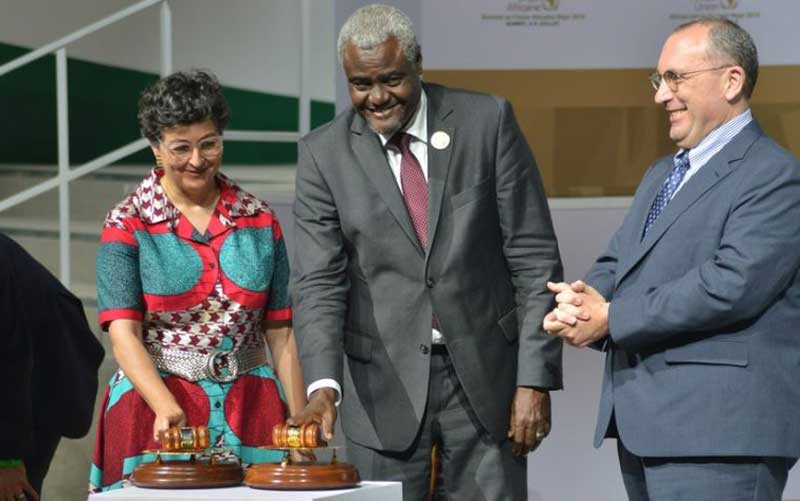
Chairman of the African Union (AU) Commission Moussa Faki Mahamat (C) announces the operational phase of the African Continental Free Trade Area (AfCFTA) Agreement during the launching ceremony in Niamey, capital of Niger, July 7, 2019. [File]
As African countries brace for the upcoming trading regime under the African Continental Free Trade Area (AfCFTA) Agreement, uncertainties are looming as to whether the pact could deliver its expected aspirations amid the unprecedented economic perils exacerbated by the Covid-19 pandemic.